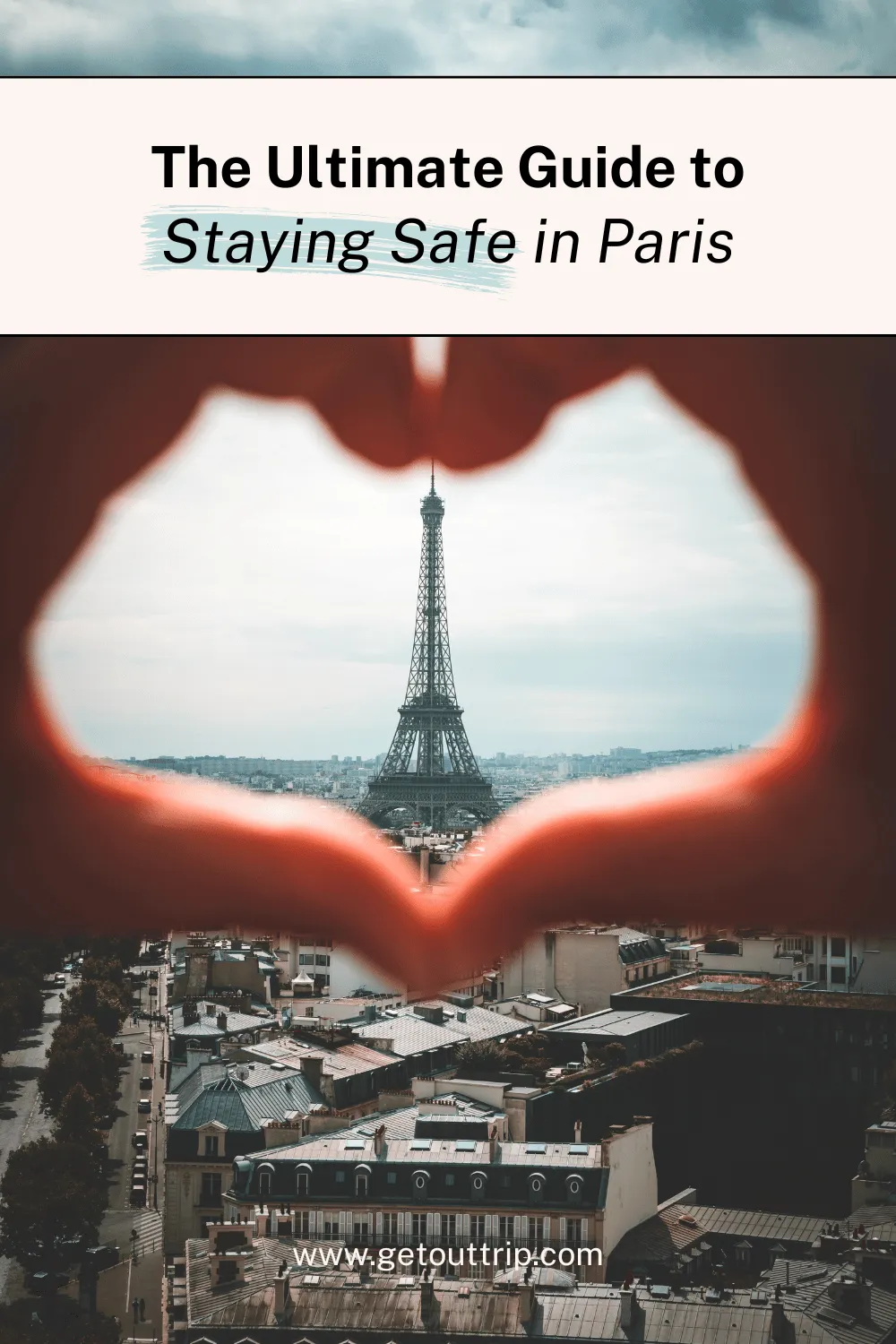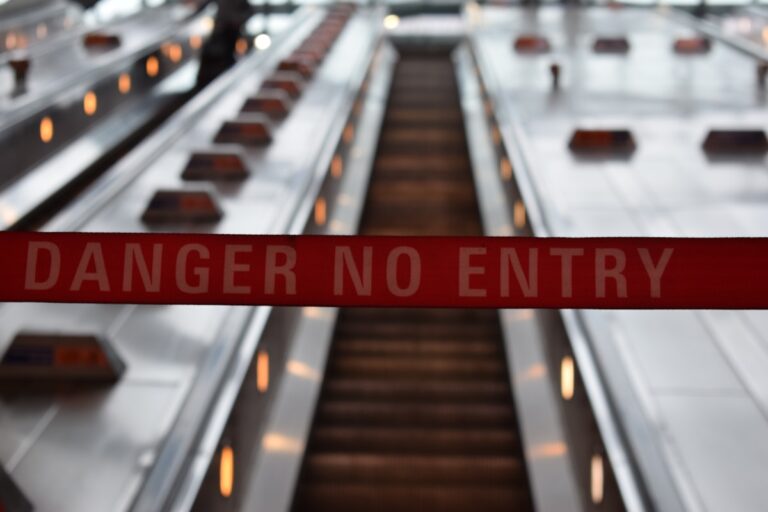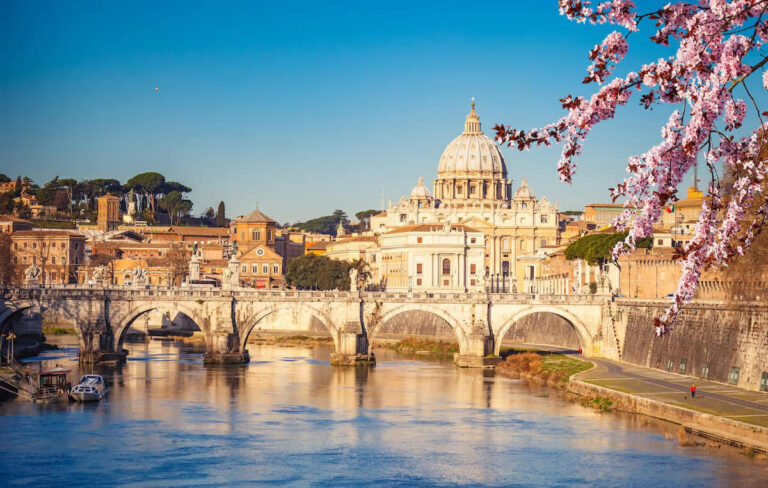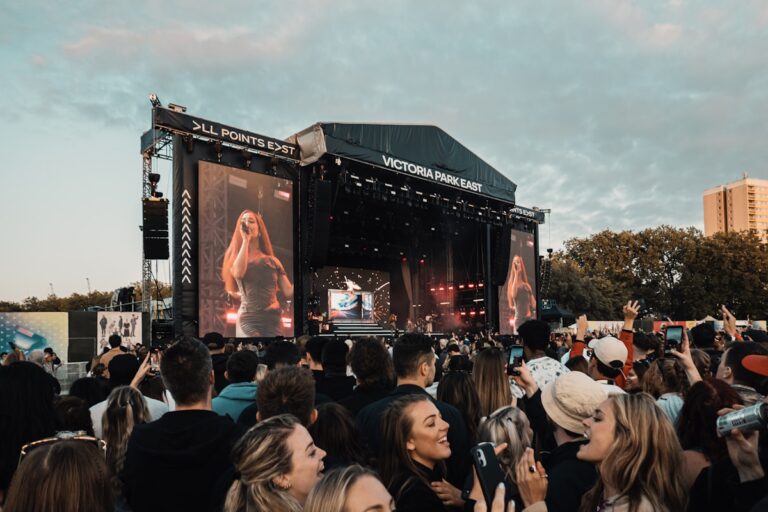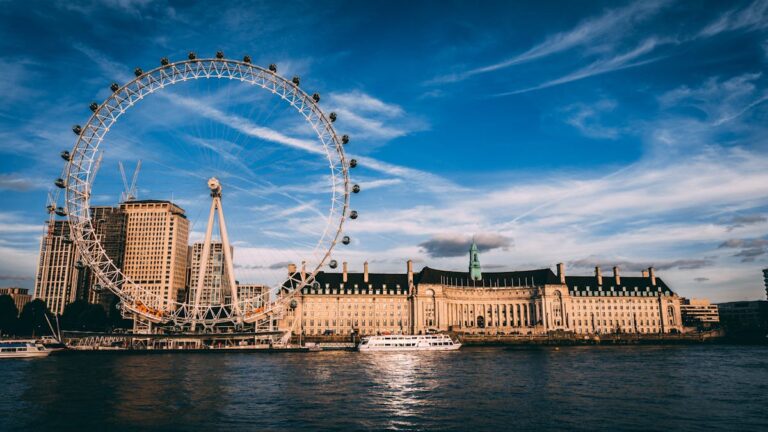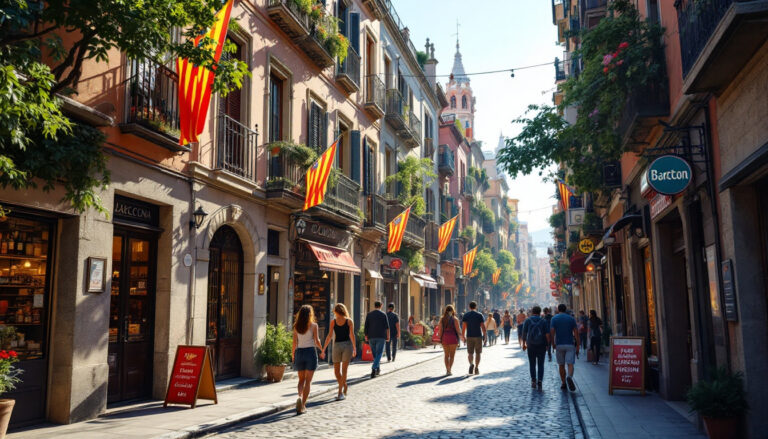Safety and Security in Paris: The Ultimate Guide to Staying Safe in Paris

Paris is generally safe for tourists, but vigilance is essential.
- Understanding the Safety Landscape in Paris
- Traveling Safely in Paris
- Accommodation: Choosing Safe Places to Stay
- Personal Safety Practices: Daily Habits for Peace of Mind
- Food and Drink Safety: Enjoying Parisian Cuisine Without Risk
- Health and Medical Safety in Paris
- Dealing with Unexpected Situations: Staying Calm Under Pressure
- Cultural Sensitivity and Respect: Enhancing Your Safety
- Conclusion: Embracing Safety While Enjoying Paris
High-visibility police patrols and extensive surveillance contribute to overall security, yet certain neighborhoods like the 18th, 19th, and 20th arrondissements have higher crime rates.
Tourists should avoid isolated areas after dark and keep valuables secure. Common urban crimes include petty theft, pickpocketing, and scams, particularly in crowded areas.
Using licensed taxis, reputable ride-sharing apps, and choosing accommodations with strong security measures enhance safety.
As part of our comprehensive Paris travel guide, staying alert to surroundings greatly improves one’s safety and experience, and more nuanced strategies await those looking to enjoy Paris without worry.
Safety and Security in Paris: Precautions and Advice
Hide- Paris is considered an average-safe city, with a high risk of pickpocketing in tourist areas and on public transit 🚫
- Be aware of your surroundings, especially in crowded areas and tourist hotspots, and keep valuables secure 💡
- Avoid walking alone in isolated areas at night, especially after 11pm, and take a taxi or Uber if necessary 🚕
- Some areas in Paris are considered safer than others, such as the 7th arrondissement, Montparnasse, and Le Marais 📍
- Be cautious of scams, such as people approaching you with clipboards or petitions, and don't engage with them 🚫
- Keep your phone and valuables secure, especially in crowded areas and on public transit, and consider using a money belt or travel insurance 📈
- Be mindful of your belongings in crowded areas and tourist hotspots, and keep an eye on your drink in bars and nightclubs 🍹
- Avoid eating food from vendors that may not be refrigerated properly, and opt for busy restaurants instead 🍴
- Look both ways before crossing the street, even in crosswalks, and be aware of bike lanes and one-way streets 🚴
- Trust your instincts and leave a situation if it doesn't feel right, and don't hesitate to ask for help if needed 🤝
- Consider purchasing travel insurance to protect yourself against theft or loss 📊
- Stay informed about local conditions and protests, and avoid areas where protests are taking place 📰
- Avoid high-crime areas like the 10th, 18th, 19th, and 20th arrondissements for increased safety.
- Use licensed taxis or reputable ride-sharing apps and share trip details with trusted contacts.
- Choose accommodations with strong security measures, including 24/7 front desk service and in-room safes.
- Stay vigilant in crowded tourist areas and use anti-theft gear to protect your belongings.
Understanding the Safety Landscape in Paris

To explore Paris safely, it is vital to understand the city’s current security situation, including prevalent crime trends and potential risks.
Familiarizing yourself with common crimes, such as pickpocketing and scams, can help you stay vigilant.
Additionally, knowing how to access local authorities and support services will guarantee you are prepared for any eventuality.
Current Safety Situation: An Overview of Parisian Security
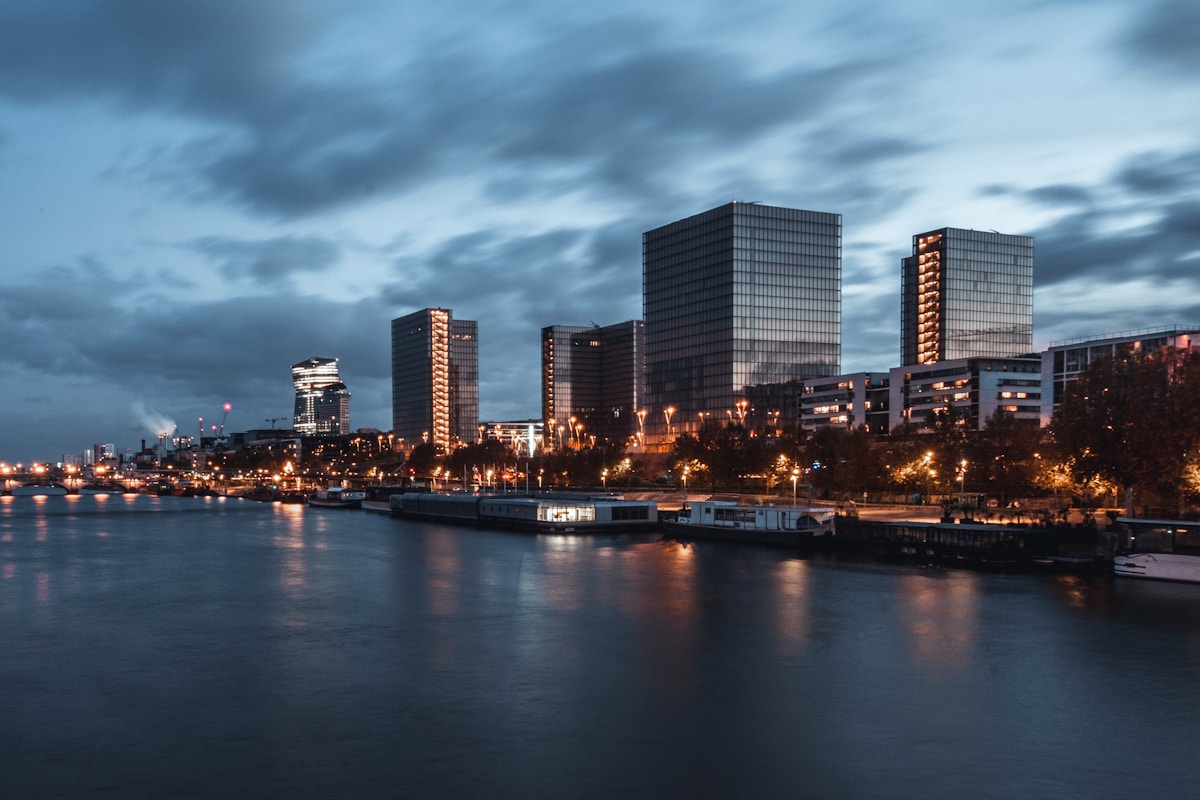
Maneuvering the safety landscape in Paris requires an understanding of the city’s current security measures and potential risks.
As of now, many travelers ask, ‘Is Paris safe right now?’ and the answer largely depends on being informed about the current safety situation. Generally, Paris is considered safe to visit, but like any major metropolis, it has its share of challenges.
The French government and local authorities continuously reinforce security measures to guarantee the well-being of residents and tourists.
High-visibility police patrols and surveillance systems are common in key areas, contributing to a robust security presence.
However, when considering ‘is it safe to travel to Paris,’ awareness of specific areas to avoid in Paris is vital. Paris neighborhoods such as certain parts of the 18th, 19th, and 20th arrondissements may have higher instances of petty crime and should be approached with caution.
While the current safety situation in Paris indicates a well-managed environment, it’s essential for visitors to remain vigilant and take standard precautions.
- Visiting Paris for the First Time: What to Do, See, and Eat
- Backpacking Paris: A Budget Backpacker’s Guide to Explore Paris
- How to Spend 3 Days in Paris
- Romantic Getaway in Paris: Most Romantic Things to Do in Paris
- Family Trip to Paris: A Family’s Guide to Exploring Paris Safely
- Exploring 25+ Most Iconic and Historical Landmarks in Paris
Avoiding isolated areas after dark, staying aware of surroundings, and keeping valuables secure can greatly enhance personal safety, making one’s visit to Paris both enjoyable and secure.
Understanding Crime Trends: Common Crimes and Risks
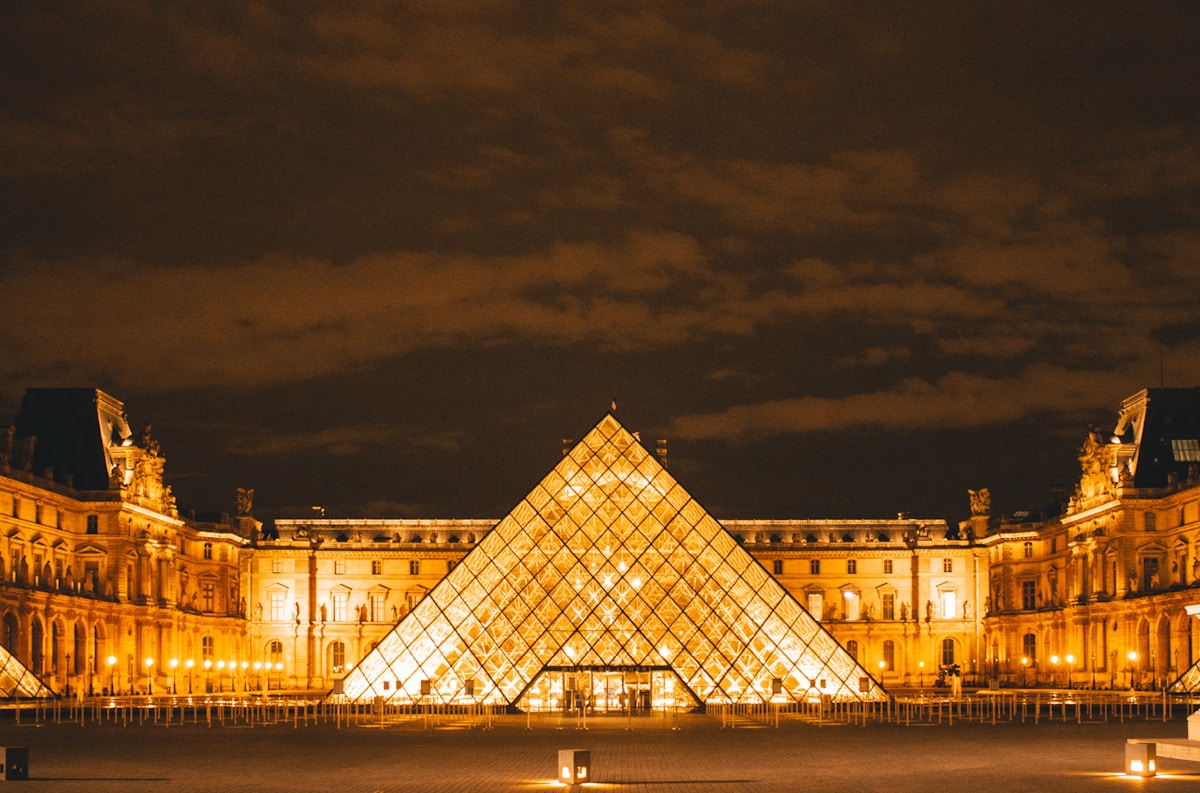
Understanding the safety landscape in Paris requires a keen awareness of common crime trends, such as petty theft, scams, and other prevalent risks.
Tourists should be particularly vigilant in high-risk areas known for these activities.
Types of Crime: Petty Theft, Scams, and More
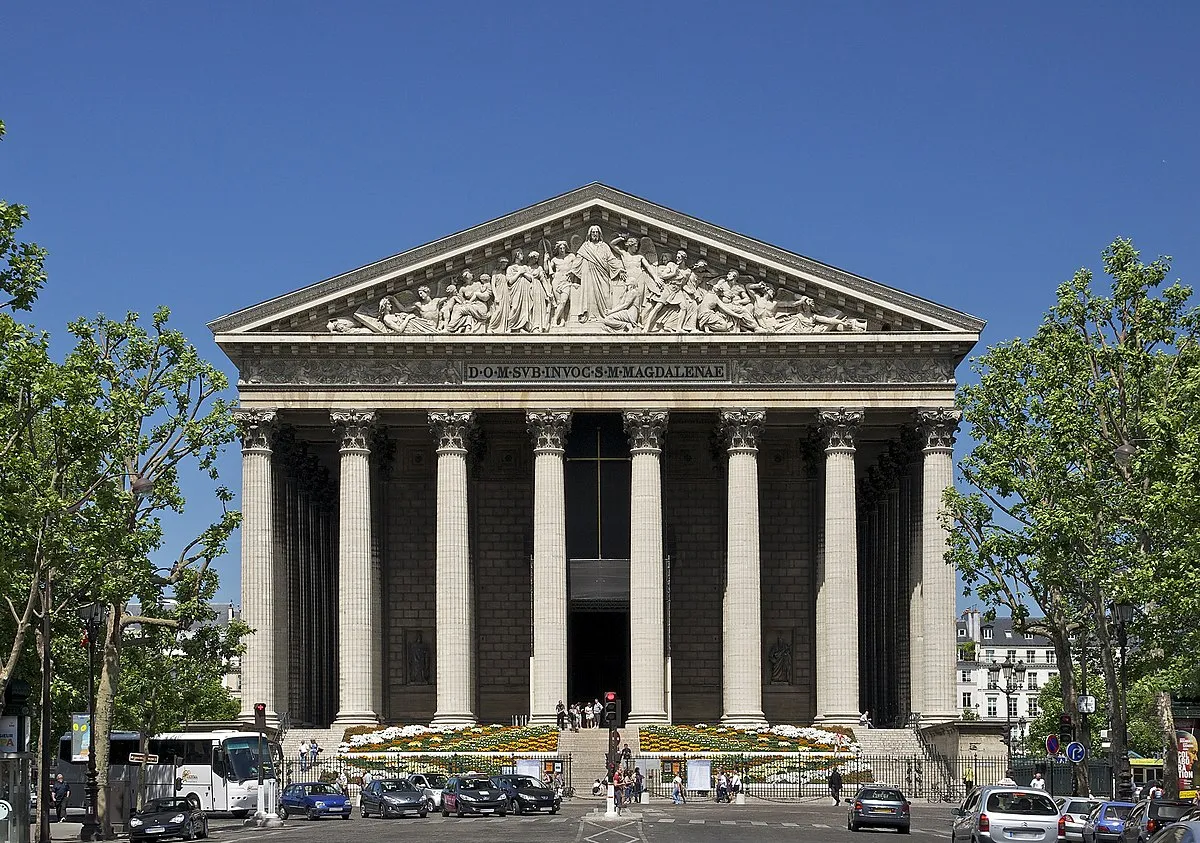
Paris, while enchanting, is not immune to common urban crimes such as petty theft, scams, and pickpocketing, which tourists should be particularly aware of.
Solo female travelers often question, ‘Is Paris safe?’ The answer lies in vigilance and choosing the safest neighborhoods in Paris.
Understanding these risks and staying alert can markedly enhance your experience while exploring this fascinating city.
High-Risk Areas: Places to Be Extra Cautious
While Paris boasts many safe areas, certain neighborhoods require extra caution due to higher incidences of crime and safety concerns.
Notable high-risk areas include the 10th arrondissement, known for its elevated crime rates. Here’s a brief overview:
| Arrondissement | Safety Concern |
|---|---|
| 10th | High-crime areas |
| 18th | Scams and petty theft |
| 19th | Violent incidents |
| 20th | Drug-related crimes |
| 1st | Pickpocketing |
Stay vigilant in these Paris arrondissements to avoid ensuring a secure visit.
Safety Resources: Local Authorities and Support Services
Understanding the safety landscape in Paris necessitates familiarity with local authorities and support services.
Knowing who to contact in emergencies, such as the police or medical services, is vital.
Being aware of community resources like embassies, consulates, and expat groups is equally important.
These resources provide essential support and guidance to guarantee your safety while traversing the city.
Police and Emergency Contacts: Who to Call and When
In the event of an emergency in Paris, knowing the appropriate local authorities and support services to contact can be vital for ensuring your safety and resolving the situation effectively.
For urgent assistance, dial 112 for general emergencies, or 17 for direct police emergency contacts.
Understanding who to call in Paris enhances your safety, as emergency services and police contacts are important resources.
Community Support: Embassies, Consulates, and Expat Groups
Steering through the safety landscape in Paris can be more manageable with the support of embassies, consulates, and expat groups.
These entities provide essential community support, facilitating a safer experience.
| Resource | Services Offered |
|---|---|
| Embassies | Emergency assistance, travel advice |
| Consulates | Document services, legal aid |
| Expat Groups | Networking, local insights |
Relying on these resources enhances overall safety in Paris.
Traveling Safely in Paris
Finding one’s way around Paris efficiently requires a focus on both transportation safety and mindful foot travel.
Ensuring personal safety while using public transports in Paris such as taxis, or rideshare services is paramount, along with being vigilant and prepared when exploring the city on foot.
Transportation Safety: How to Protect Yourself
Maneuvering Paris safely involves being mindful of various transportation options.
When using the Metro, adhere to basic safety tips to avoid common pitfalls.
Whether opting for taxis, ride-sharing services, or cycling, understanding the best practices can guarantee your travels are both efficient and secure.
Using the Metro: Safety Tips for Paris’ Subways
When using the Paris Metro, it is essential to stay vigilant and be aware of your surroundings to secure your safety.
Employing practical safety tips, such as keeping an eye on your belongings and avoiding isolated areas, can enhance your experience.
While Paris is safe to travel, being cautious, especially in busy areas like Montmartre, guarantees a secure journey through Paris’ subways.
Taxis and Ride-Sharing: Ensuring a Safe Trip
Switching from the Metro to taxis and ride-sharing services in Paris requires a different set of safety considerations to assure a secure and pleasant journey.
Opt for licensed taxis or reputable ride-sharing apps, confirm driver details, and share trip information with a trusted contact.
Prioritize safety by avoiding unmarked vehicles and staying vigilant throughout your ride to assure a safe trip in Paris.
Cycling and Scooters: Navigating Paris on Two Wheels
Cycling and using scooters in Paris offer an efficient and eco-friendly way to explore the city, but it is crucial to adhere to safety protocols to guarantee a secure experience.
- Wear a helmet: Essential for head protection.
- Follow traffic rules: Respect signals and lanes.
- Use designated paths: Opt for safe routes for cycling.
- Stay alert: Be aware of pedestrians and vehicles.
Navigating Paris on two wheels can be both safe and enjoyable.
Foot Travel: Staying Safe While Exploring on Foot
When exploring Paris on foot, it is essential to stay vigilant in popular touristic areas, where crowded conditions can increase the risk of petty crime.
Additionally, taking precautions while walking at night, such as sticking to well-lit streets and avoiding isolated areas, can greatly enhance your safety.
Popular Touristic Areas: Staying Vigilant in Crowded Spots
Maneuvering through Paris’s popular touristic areas requires heightened awareness, as these bustling spots can be hotspots for petty theft and scams.
To guarantee a safe experience:
- Keep valuables secure: Use a money belt or crossbody bag.
- Stay alert: Be mindful of your surroundings.
- Choose safe arrondissements: Prefer areas like the 1st, 4th, and 5th.
- Travel in groups: Especially important for solo female travelers.
Nighttime Safety: Precautions for Walking at Night
Ensuring personal safety while walking through Paris at night demands a combination of strategic planning and situational awareness.
Is it safe to go to Paris right now? Yes, but consider these precautions:
| Precaution | Description |
|---|---|
| Stick to well-lit areas | Avoid poorly lit or deserted streets |
| Travel in groups | Safety increases in numbers |
| Stay alert | Keep an eye on surroundings and belongings |
Is it safe to travel to Paris now? Absolutely, with the right precautions.
Accommodation: Choosing Safe Places to Stay
When choosing accommodation in Paris, prioritizing safety is essential.
Look for hotels and hostels with strong security measures, such as 24/7 front desk service and secure entry points.
Additionally, consider the safety features and reviews of alternative accommodations like Airbnb and host rentals to guarantee a secure and comfortable stay.
Selecting Safe Hotels and Hostels: What to Look For
When choosing accommodations in Paris, prioritizing safety is essential.
Opt for hotels or hostels situated in well-regarded neighborhoods known for their low crime rates, and guarantee the property offers robust security features such as 24-hour reception, secure locks, and surveillance systems.
Also read: Best Hotels in Paris with Eiffel Tower View
Taking these measures will greatly enhance your peace of mind during your stay.
Location Matters: Best Paris Neighborhoods for Safety
Selecting the right neighborhood is essential for ensuring a safe and enjoyable stay in Paris.
Prioritize the following areas:
- Le Marais: Known for its vibrant culture and well-lit streets.
- Saint-Germain-des-Prés: Offers a blend of historic charm and modern safety.
- Montmartre: Popular with tourists, ensuring constant police presence.
- The Latin Quarter: Bustling with students and safe day or night.
Choose wisely to maximize your freedom and security.
Hotel Security Features: Ensuring Your Room Is Secure
Ensuring your hotel room is secure involves verifying key security features such as electronic key card access, 24/7 front desk service, and in-room safes.
Additionally, look for properties with surveillance cameras in common areas and secure entry points.
Opt for hotels that offer well-lit corridors and emergency exit plans.
Prioritizing these features will provide peace of mind, allowing you to enjoy Paris freely.
Alternative Accommodations: Safety in Airbnb and Host Rentals
When opting for alternative accommodations like Airbnb and host rentals in Paris, ensuring your safety starts with thoroughly vetting your host for credibility and reliability.
Confirming the host’s identity, reading reviews, and checking for verified listings can provide peace of mind.
Additionally, adopting practical safety measures, such as securing valuables and familiarizing yourself with emergency exits, is essential when staying in private residences.
Vetting Your Host: Ensuring Credibility and Safety
Thoroughly researching your host’s background is an essential step in assuring a safe and reliable accommodation experience in Paris.
Follow these steps:
- Read Reviews: Analyze previous guests’ feedback.
- Check Verification: Confirm the host has been verified by the platform.
- Communicate Directly: Engage in conversation with the host beforehand.
- Look for Superhost Status: Prefer hosts with a high rating and consistent positive reviews.
This approach assures peace of mind.
Safety Precautions: Tips for Staying in Private Residences
Prioritizing safety when staying in private residences, such as Airbnb and host rentals, requires a strategic approach to mitigate potential risks.
Verify the property’s location in a safe neighborhood, check reviews from previous guests, and communicate directly with the host to clarify security measures.
Ascertain the residence has functional locks, smoke alarms, and emergency exits to create a secure environment.
Personal Safety Practices: Daily Habits for Peace of Mind
To guarantee your personal safety in Paris, adopting daily habits such as safeguarding your belongings and staying vigilant in public spaces is vital.
Simple practices like keeping your valuables secure and maintaining situational awareness can greatly reduce the risk of theft and other incidents.
Protecting Your Belongings: Avoiding Theft and Loss
To safeguard your belongings while exploring Paris, incorporating anti-theft gear such as secure bags and wallets can greatly reduce the risk of theft.
Additionally, adopting mindful behavior, such as staying alert in crowded areas and avoiding the display of valuables, goes a long way in not becoming a target.
Together, these practical steps guarantee that you can enjoy your visit with greater peace of mind.
Using Anti-Theft Gear: Best Products for Safety
Investing in high-quality anti-theft gear is a crucial step towards ensuring your safety and protecting your belongings while exploring Paris.
Consider these essential items:
- Anti-theft backpacks with lockable zippers and cut-resistant materials.
- RFID-blocking wallets to protect against electronic pickpocketing.
- Portable safes for securing valuables in your accommodation.
- Travel locks for securing luggage and bags in public places.
These products offer practical protection and peace of mind.
Behavior Tips: How Not to Become a Target
Maintaining a low profile and staying vigilant are essential strategies for reducing the risk of becoming a target for theft in Paris.
Avoid displaying valuable items like jewelry or electronics openly.
Be cautious in crowded areas and keep an eye on your surroundings.
Use cross-body bags that zip securely and avoid keeping wallets in back pockets to deter pickpockets effectively.
Navigating Public Spaces: Being Aware and Prepared
When traversing public spaces in Paris, it is essential to adopt safe practices for handling money, such as distributing cash and cards in different secure pockets to minimize risk.
Additionally, using public Wi-Fi networks requires vigilance; always connect through a virtual private network (VPN) to protect personal information from potential cyber threats.
These daily habits can greatly enhance your peace of mind while exploring the city.
Handling Money: Safe Practices for Cash and Cards
Ensuring the security of your cash and cards while in Paris is paramount to maintaining financial safety and peace of mind.
To effectively manage your funds, consider these practices:
- Use RFID-blocking wallets to prevent digital theft.
- Carry minimal cash and use credit cards where possible.
- Avoid ATMs in secluded areas; opt for those inside banks.
- Monitor your accounts regularly for any unusual activity.
Public Wi-Fi: Staying Secure Online
In addition to safeguarding your cash and cards, securing your online presence while utilizing public Wi-Fi in Paris is equally important to protect your personal information.
Always use a Virtual Private Network (VPN) to encrypt your data.
Avoid accessing sensitive accounts or conducting financial transactions on public networks.
Regularly update your device’s security software to further minimize potential cyber threats and enjoy your freedom with peace of mind.
Food and Drink Safety: Enjoying Parisian Cuisine Without Risk
When enjoying Parisian cuisine, selecting safe and reliable restaurants is key to a pleasant dining experience.
Additionally, practicing responsible drinking habits is essential for staying safe while exploring the city’s vibrant nightlife.
Eating Out: Choosing Safe and Reliable Restaurants
When dining out in Paris, it’s important to recognize indicators of safe and reputable establishments, such as cleanliness, positive reviews, and visible health inspection certificates.
Additionally, being aware of common food scams, such as inflated prices or misleading menus, can help you avoid unnecessary risks.
Recognizing Safe Establishments: What to Look For
Selecting safe and reliable restaurants in Paris requires recognizing certain hallmarks of quality and hygiene.
Look for:
- Cleanliness: Spotless tables, floors, and restrooms.
- Certifications: Visible health and safety inspection certificates.
- Crowd: A steady flow of satisfied patrons, especially locals.
- Reviews: Positive online reviews and ratings across multiple platforms.
These indicators guarantee a safe and enjoyable dining experience in the City of Light.
Avoiding Food Scams: Common Tricks and How to Avoid Them
Maneuvering the culinary landscape of Paris requires awareness of common food scams to secure a safe and authentic dining experience.
Watch out for inflated prices at tourist hotspots, deceptive menu translations, and unsolicited ‘complimentary’ items that later appear on the bill.
Opt for well-reviewed establishments, avoid overly aggressive street vendors, and always confirm prices before ordering to guarantee a delightful and scam-free meal.
Drinking Responsibly: Safety Tips for Nightlife
When enjoying Parisian nightlife, it is vital to prioritize safety by being aware of your surroundings in bars and cafés.
To prevent drink spiking, always keep an eye on your beverage and avoid accepting drinks from strangers.
Additionally, familiarize yourself with local emergency contacts and consider traveling with friends to guarantee a secure and enjoyable evening.
BAR Safety: How to Stay Safe in Cafés and Bars
Ensuring your safety while enjoying the vibrant café and bar scene in Paris involves being mindful of your surroundings and making informed choices about food and drink.
- Stay alert: Always be aware of your environment and personal belongings.
- Know your limits: Drink responsibly to maintain control.
- Choose reputable venues: Opt for well-reviewed and established locations.
- Buddy system: Stick with friends or trusted companions.
Avoiding Drink Spiking: Precautions to Take
To further secure your safety in Parisian nightlife, taking precautions against drink spiking is paramount.
Always keep an eye on your drink, avoid accepting beverages from strangers, and consider using drink covers.
Opt for bottled drinks you open yourself.
Trust your instincts—if something feels off, it probably is.
Staying vigilant guarantees a carefree and enjoyable experience in the vibrant Parisian nightlife.
Health and Medical Safety in Paris
Ensuring health and medical safety while in Paris involves being aware of how to access medical services and manage emergencies effectively.
Travelers should familiarize themselves with local healthcare facilities and carry essential health information.
Additionally, knowing who to contact in case of a medical emergency can greatly reduce response times and improve outcomes.
Preparing for Health Issues: Accessing Medical Services
When planning your trip to Paris, it’s essential to guarantee you have thorough health insurance that covers potential medical expenses.
Familiarizing yourself with local hospitals and clinics will also help you access timely medical assistance if needed.
Being well-prepared for health issues can greatly enhance your safety and peace of mind during your stay.
Health Insurance: Why It’s Important and What It Covers
Obtaining extensive health insurance is essential for safeguarding against unexpected medical expenses while in Paris.
Thorough coverage typically includes:
- Emergency medical treatment – guaranteeing immediate care without financial stress.
- Hospitalization costs – covering stays in medical facilities.
- Prescription medications – providing necessary drugs without out-of-pocket expenses.
- Medical evacuation – for serious conditions requiring transport back home.
Investing in robust health insurance guarantees peace of mind and financial security.
Local Hospitals and Clinics: Getting Help When Needed
Maneuvering the local healthcare system in Paris involves knowing the key hospitals and clinics where you can receive prompt and quality medical attention.
Notable institutions include the American Hospital of Paris and Hôpital Necker-Enfants Malades.
For urgent care, SOS Médecins provides 24/7 home visits.
Ensuring you have this information at hand allows for freedom and peace of mind during your stay.
Managing Emergencies: Knowing Who to Contact
In the event of a medical emergency while in Paris, it is vital to have a quick reference guide for emergency numbers, such as 15 for medical assistance and 112 for general emergencies.
Additionally, knowing the locations of 24-hour pharmacies can guarantee timely access to essential medications.
Being informed about these resources can greatly enhance your ability to manage health crises effectively.
Emergency Numbers: Quick Reference Guide
When facing a health or medical emergency in Paris, knowing the appropriate emergency numbers can greatly expedite receiving the necessary assistance.
Here are the key numbers to keep handy:
- 15 – SAMU (Emergency Medical Services)
- 18 – Fire Brigade (also handles medical emergencies)
- 112 – General Emergency Number (usable across the EU)
- 114 – Emergency Number for the Hearing Impaired
Stay informed and prepared.
Pharmacies and Emergency Medicine: Where to Go
Finding a pharmacy in Paris is straightforward, and many are open late or provide 24-hour service to guarantee you can access necessary medications during an emergency.
Pharmacies are easily identifiable by their green cross signs.
For urgent medical assistance, head to the nearest hospital emergency department or contact SOS Médecins, a 24/7 medical service offering home visits for immediate care.
Dealing with Unexpected Situations: Staying Calm Under Pressure
In the event of lost or stolen belongings, it is vital to contact local authorities and your embassy immediately to report the incident and seek assistance.
For accidents and injuries, promptly calling emergency services and providing first aid can mitigate further harm.
Staying composed and following these practical steps guarantees that you manage unexpected situations effectively.
Lost or Stolen Belongings: Steps to Take Immediately
In the unfortunate event that your belongings are lost or stolen in Paris, it is vital to remain composed and take immediate action.
First, promptly report the incident to the local authorities to file a police report, which is essential for insurance claims and future reference.
Next, focus on replacing any important documents, such as passports or credit cards, by contacting the relevant institutions and seeking assistance from your country’s embassy or consulate.
Reporting to Authorities: How to File a Report
When dealing with unexpected situations such as lost or stolen belongings, promptly filing a report with the local authorities is essential to guarantee that appropriate actions are taken.
Here’s how:
- Locate the nearest police station – Use a map or ask locals.
- Prepare necessary documents – ID, proof of ownership.
- File the report – Provide detailed information.
- Obtain a copy – For insurance and further steps.
Replacing Essential Documents: Quick Guide
Losing essential documents while traveling can be stressful, but taking immediate steps to replace them will help mitigate further complications.
First, contact your embassy or consulate; they can assist with emergency passports.
Report the loss to local police to obtain a report for your records.
Notify your bank to cancel and replace any credit cards.
Keep digital copies of your documents for easier replacement.
Handling Accidents and Injuries: Immediate Actions to Take
In the event of an accident or injury in Paris, it is essential to stay composed and assess the situation swiftly.
For minor incidents, having basic first aid knowledge and knowing where to find local pharmacies can be invaluable.
For more serious emergencies, understanding when and how to contact urgent medical services can make a significant difference in outcomes.
Minor Incidents: First Aid and Local Help
Encountering minor incidents while in Paris necessitates a calm and informed approach to first aid and seeking local help. Here are essential steps:
- Assess the Situation: Quickly evaluate the severity of the incident.
- Administer Basic First Aid: Use a first aid kit to address minor injuries.
- Contact Local Pharmacists: Pharmacies can offer immediate advice and supplies.
- Utilize Emergency Numbers: Dial 112 for non-critical assistance.
Serious Emergencies: When and How to Seek Urgent Care
When faced with a serious emergency in Paris, it is essential to remain composed and take immediate, informed actions to guarantee safety and prompt medical assistance.
First, dial 112 or 15 for urgent medical help.
Administer basic first aid if trained, and provide clear information about the incident and location.
Stay on the line until help arrives, ensuring accurate communication with emergency responders.
Cultural Sensitivity and Respect: Enhancing Your Safety
Adhering to local norms and understanding cultural nuances can greatly enhance your safety while visiting Paris.
Familiarize yourself with common behaviors and legal regulations to guarantee you are respectful and compliant, which can prevent misunderstandings and potential conflicts.
Additionally, being aware of local laws will help you avoid inadvertent legal issues, guaranteeing a smoother and safer experience.
Understanding Local Norms: Behavior That Keeps You Safe
When visiting Paris, understanding and adhering to local norms considerably enhances your safety.
Dressing and conducting yourself in a manner that aligns with local expectations helps you blend in and avoid unwanted attention.
Additionally, respecting local customs fosters a positive interaction with residents, contributing to a safer and more enjoyable experience.
Dress and Conduct: Adapting to Local Expectations
Maneuvering through Paris safely necessitates an understanding of local dress codes and behavioral norms to show cultural sensitivity and respect.
To blend in and enhance your safety, consider:
- Dress modestly – Avoid overly casual or revealing clothing.
- Mind your manners – Politeness goes a long way.
- Keep a low profile – Avoid loud conversations.
- Respect personal space – Maintain appropriate distances.
Respecting Customs: Tips for Blending In
Understanding and respecting Parisian customs is essential for blending in and ensuring a safe and enjoyable visit.
Greet locals with a polite ‘bonjour’ and avoid loud conversations in public. Read our guide to Parisian etiquette for being able to exploring Paris like a local.
Dress modestly in religious sites and adhere to social etiquette, like not discussing money openly.
Legal Considerations: Laws and Regulations
Understanding the laws and regulations in Paris is essential to ensuring your safety and maintaining cultural respect.
Familiarize yourself with local legal norms to avoid unintentional violations, and know where to seek legal assistance should you encounter any issues.
This proactive approach can greatly enhance your experience and security during your stay.
Knowing the Law: What You Can and Cannot Do
Familiarizing yourself with local laws and cultural norms in Paris is essential for ensuring a safe and respectful visit. Here are key points to reflect upon:
- Alcohol Consumption: Public drinking is regulated; avoid open containers.
- Smoking: Only in designated areas.
- Dress Code: Respectful attire in religious sites.
- Public Behavior: Avoid loud disruptions, especially at night.
Legal Assistance: Getting Help If You Need It
In the event that you encounter legal issues while in Paris, knowing where to seek legal assistance is vital for managing the situation effectively.
Reach out to the local embassy or consulate for guidance and support.
Additionally, Paris hosts numerous law firms specializing in aiding international clients.
Promptly addressing legal concerns guarantees you can enjoy your stay with peace of mind and confidence.
Conclusion: Embracing Safety While Enjoying Paris
To sum up, embracing safety while enjoying Paris involves a balanced approach, integrating essential safety tips with a spirit of adventure.
By remaining vigilant and respectful of local customs, you can enhance your overall experience without compromising security.
Final Tips: Summarizing Essential Safety Advice
As you prepare to explore the enchanting streets of Paris, it is crucial to keep a few essential safety tips in mind to guarantee a secure and enjoyable experience.
Paris is a city that promises adventure and delight, but like any major metropolis, it requires a level of awareness and preparedness. Here are some practical guidelines to help you navigate Paris safely:
- Stay Aware of Your Surroundings: Always be vigilant, especially in crowded areas like tourist attractions and public transport. Pickpockets often target these spots, so keep your belongings secure and avoid displaying valuable items.
- Use Trusted Transportation: Opt for reputable taxi services or rideshare apps instead of hailing cabs off the street. Public transportation is generally safe, but be cautious during late hours.
- Secure Your Accommodation: Choose well-reviewed hotels or vacation rentals in safe neighborhoods. Confirm your accommodation has adequate security measures such as locked doors, safes, and surveillance.
- Emergency Preparedness: Familiarize yourself with emergency numbers and the location of the nearest embassy or consulate. Having a plan can make all the difference in unexpected situations.
Enhancing Your Experience: Balancing Fun with Caution
Striking the perfect balance between enjoyment and caution is essential for making the most of your Parisian adventure.
While Paris offers an abundance of beauty, culture, and excitement, staying vigilant guarantees that your experience remains memorable for all the right reasons.
Start by familiarizing yourself with local customs and safety practices. Simple actions, such as keeping your belongings secure and being aware of your surroundings, can greatly enhance your sense of security.
Opt for well-traveled routes and reputable establishments, particularly when exploring unfamiliar areas.
Engaging with locals and seeking recommendations can also provide invaluable insights into safe and enjoyable experiences. Remember, your freedom to explore should not compromise your well-being.
Moreover, balance spontaneity with preparation. Carry a charged mobile phone, an updated map, and emergency contacts. Should an unexpected situation arise, having essential information at your fingertips will mitigate risks.
Frequently Asked Questions (FAQs)
Is Paris OK to visit now?
Paris is currently considered safe to visit, with several sources affirming that it remains a welcoming destination for travelers in 2025. Here are some key points regarding safety and travel conditions:
- General Safety: Paris is viewed as a safe city for tourists, comparable to other major cosmopolitan cities. Increased security measures have been implemented throughout the city, particularly in tourist areas, airports, and public transport systems. Authorities have heightened police presence to ensure visitor safety[1][2].
- Crime Concerns: While violent crime is generally uncommon, petty crimes like pickpocketing are the primary concerns. Visitors are advised to remain vigilant in crowded areas and avoid isolated streets at night[2][4]. The U.S. Bureau of Diplomatic Security notes that tourists should exercise caution but can feel secure in most parts of the city[2].
- Recent Events: Although France has experienced protests and some civil unrest in the past year, these incidents have largely not affected tourist areas directly. Many recent visitors report feeling safe and encountering no issues during their travels[5][6].
- Travel Advisories: Official advisories recommend exercising increased caution, particularly in crowded places and during nighttime in certain suburbs. However, most tourist districts are reported to be safe for exploration[3][8].
- Local Sentiment: Many travelers have shared positive experiences about their recent visits to Paris, emphasizing that the media may exaggerate safety concerns. Reports suggest that the atmosphere in the city remains vibrant and enjoyable for tourists[5].
In conclusion, Paris is currently a safe destination for travelers, provided they take standard precautions typical of any large city. Enjoying the city’s rich culture and attractions is highly encouraged.
Where not to go in Paris right now?
When visiting Paris, there are certain areas that travelers are advised to avoid, especially at night. Here are the key neighborhoods and locations to be cautious about:
- Gare du Nord and Gare de L’Est: These major train stations can feel sketchy late at night due to the constant flow of people and the surrounding environment. While daytime transit is generally safe, it’s recommended to avoid staying in this area overnight, particularly for first-time visitors[1].
- Sacré-Cœur and Pigalle: The area around Sacré-Cœur can become seedy after dark. Although it is safe during the day, it’s best to leave promptly after sunset. Pigalle, known for its nightlife, can also be less secure late at night, so visitors should be vigilant[1][2].
- 18th Arrondissement (Montmartre): While Montmartre is popular with tourists, parts of the 18th arrondissement, especially around Pigalle and Barbès, have higher crime rates. It’s advisable to avoid these areas after dark due to potential drug-related activities and public disturbances[2][3][4].
- 19th Arrondissement: Some neighborhoods in this area can be quiet and empty at night, making them less safe for solo travelers. It’s better to stick to busier central areas during late hours[3][4].
- Bois de Boulogne: This large park is not recommended for nighttime visits due to safety concerns associated with its secluded areas[3].
- Northern Suburbs: Areas beyond the city limits, particularly in northern suburbs like Seine-Saint-Denis, are advised against visiting after dark due to higher rates of violent crime and gang activity[4][5].
Travelers should remain vigilant throughout their visit, especially at night, and avoid isolated or poorly lit areas regardless of their reputation during the day.
How to avoid getting mugged in Paris?
To avoid getting mugged or falling victim to theft in Paris, consider the following strategies:
- Stay Alert in Crowded Areas: Be particularly vigilant in busy tourist spots, on public transportation, and at markets. Thieves often work in crowded environments where they can blend in easily. Keep your belongings close and be aware of your surroundings, especially if you notice any commotion or distractions nearby, as these may be tactics used by thieves to divert your attention[1][4][5].
- Use Secure Bags: Opt for a front-facing shoulder bag or a fanny pack that you can easily monitor. When in crowded areas, keep your bag zipped and clasped with your hand over it to deter pickpockets. Consider using a Bobino zipper clip to make it harder for thieves to access your bag[1][3].
- Avoid Displaying Valuables: Keep expensive items like cameras, phones, and wallets out of sight. When using your phone, do not place it on tables or counters; instead, keep it in a secure pocket. Avoid carrying large amounts of cash; use bank cards for transactions whenever possible[4][5][6].
- Be Cautious with ATMs: Use ATMs located inside banks during business hours to reduce the risk of theft. If you must use an outdoor ATM, be aware of your surroundings and consider having a friend stand nearby while you withdraw cash[6][7].
- Watch for Scams: Be wary of individuals approaching you with petitions or asking for donations. These can often be distractions for pickpockets. If approached, it’s best to ignore them and keep moving[2][5].
- Keep Bags Close: Never leave bags unattended or set them down on chairs or tables. Always keep them within reach and under your control when sitting at cafés or waiting in lines[4][8].
- Dress Discreetly: Try to blend in with locals by dressing modestly and avoiding flashy clothing or accessories that might attract attention from thieves. Speaking softly and avoiding loud conversations on public transit can also help you appear less like a tourist[6][7].
By following these precautions, you can significantly reduce the risk of being mugged or targeted by thieves while enjoying your time in Paris.
Should you carry your passport with you in Paris?
In Paris, it is advisable to carry your passport with you for identification purposes, as it is the only valid proof of identity for non-EU travelers. Here are some key points to consider:
- Legal Requirement: French law mandates that all foreign visitors must carry identification, and for non-EU citizens, this typically means having your passport on hand. Failure to present an acceptable form of ID can lead to complications with local authorities, including potential fines or detainment[2][4].
- Risk of Theft: While carrying your passport is necessary, it also poses a risk of theft. Paris is known for pickpocketing, especially in tourist-heavy areas. Many travelers recommend using a money belt or a secure bag to keep your passport safe while exploring the city[1][2].
- Alternatives: Some travelers opt to leave their passports in a hotel safe and carry a photocopy instead. While this can reduce the risk of losing the actual document, it’s important to note that a photocopy may not suffice if you are asked for proof of identity by police[3][6]. Having a digital copy on your phone can also be useful as a backup.
- When to Carry It: If you plan to venture far from your hotel or engage in activities like taking a train trip or visiting government offices, carrying your passport is recommended. For casual outings or dining in local neighborhoods, some choose to leave it behind[2][4].
In summary, while it’s important to have your passport with you in Paris due to legal requirements, balancing safety and convenience is crucial. Consider using secure methods to carry it and weigh the risks based on your planned activities.
What to be careful in Paris?
When visiting Paris, there are several precautions to take to ensure your safety and enhance your experience. Here are key areas to be careful about:
- Be Aware of Pickpockets: Pickpocketing is common in crowded tourist areas such as the Eiffel Tower, Champs-Élysées, and on public transportation. Keep your personal belongings secure, preferably in a crossbody bag or money belt, and always be vigilant about your surroundings[1][2].
- Stay Alert in Crowded Places: Remain vigilant in busy locations, especially where distractions may occur. Thieves often work in teams, using tactics like asking for directions or creating a scene to divert your attention while they steal from you[1][3].
- Avoid Isolated Areas at Night: While Paris is generally safe, it’s best to avoid poorly lit or isolated streets after dark. Stick to well-populated areas and main streets, especially when walking alone[3][4].
- Secure Your Valuables: Use hotel safes for important items like passports and avoid displaying expensive jewelry or electronics in public. When dining out, keep bags on your lap or in sight rather than on the floor or chair[1][5].
- Be Cautious with ATMs: Use ATMs located inside banks during daylight hours. Be discreet when entering your PIN and avoid withdrawing large sums of cash at once[4][5].
- Know Emergency Contacts: Familiarize yourself with local emergency numbers (e.g., 112 for general emergencies) and keep them saved on your phone for quick access if needed[1].
- Watch for Scams: Be cautious of individuals asking you to sign petitions or engage in games that seem suspicious. Politely decline and move on if approached by such individuals[2][3].
By remaining aware of these aspects and taking sensible precautions, you can enjoy a safer experience while exploring the beauty of Paris.
Can you walk around Paris at night?
Walking around Paris at night can be safe, particularly in well-populated and central areas, but there are important considerations to keep in mind:
- Safe Areas: Central neighborhoods such as the 1st to 6th arrondissements are generally considered safe for nighttime strolls. These areas tend to have more people out enjoying the nightlife, which can enhance safety.
- Caution in Certain Areas: It is advisable to avoid specific neighborhoods after dark, particularly:
- Gare du Nord and Gare de l’Est: These areas can be sketchy at night due to the presence of drunk individuals and potential pickpockets.
- 18th Arrondissement: Parts of this area, especially around Barbès and Pigalle, can feel unsafe late at night.
- 19th Arrondissement: Areas near Stalingrad and certain parks may also be less secure after dark.
- Bois de Boulogne: This park is not recommended for nighttime visits due to safety concerns.
- General Safety Tips:
- Stay aware of your surroundings and avoid isolated streets.
- Walk with confidence and avoid displaying valuables.
- If you feel uncomfortable or notice anything suspicious, it’s wise to change your route or seek a busier area.
- Public Transport Considerations: If using public transport late at night, be cautious, as some stations can be less secure. It’s advisable to use taxis or rideshare services if traveling late.
Overall, while many people walk around Paris at night without issues, exercising common sense and being aware of your surroundings will help ensure a safer experience.

